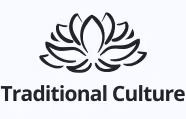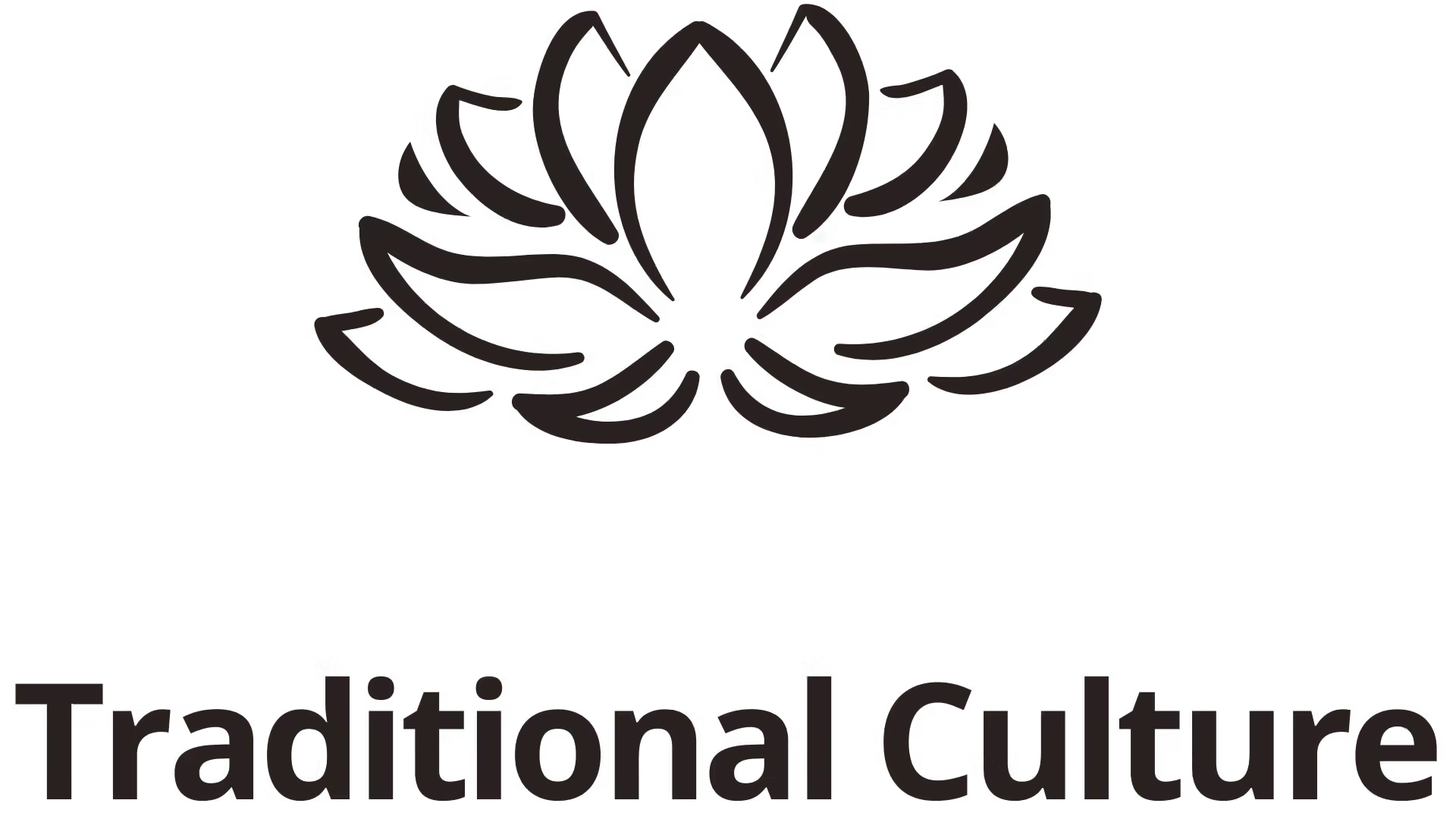The Royal Concertgebouw Orchestra is a name that resonates through the hallowed halls of classical music. Known globally as one of the premier orchestras, it encapsulates not only musical excellence but also a rich tapestry of cultural heritage. Founded in 1888 and based in Amsterdam, this orchestra has earned its place as a cornerstone of symphonic tradition, engaging audiences with its intricate artistry. As we explore the various dimensions of the Royal Concertgebouw Orchestra, we will uncover its historical evolution, global impact, artistic innovation, and community engagement—each telling a story of an institution deeply intertwined with the fabric of human experience.
A Symphony of History
History serves as the backbone of any great institution, and the Royal Concertgebouw Orchestra’s history is nothing short of extraordinary. This section delves into the orchestra’s formation, its influential figures, and its remarkable evolution over the decades.
The Genesis of an Icon
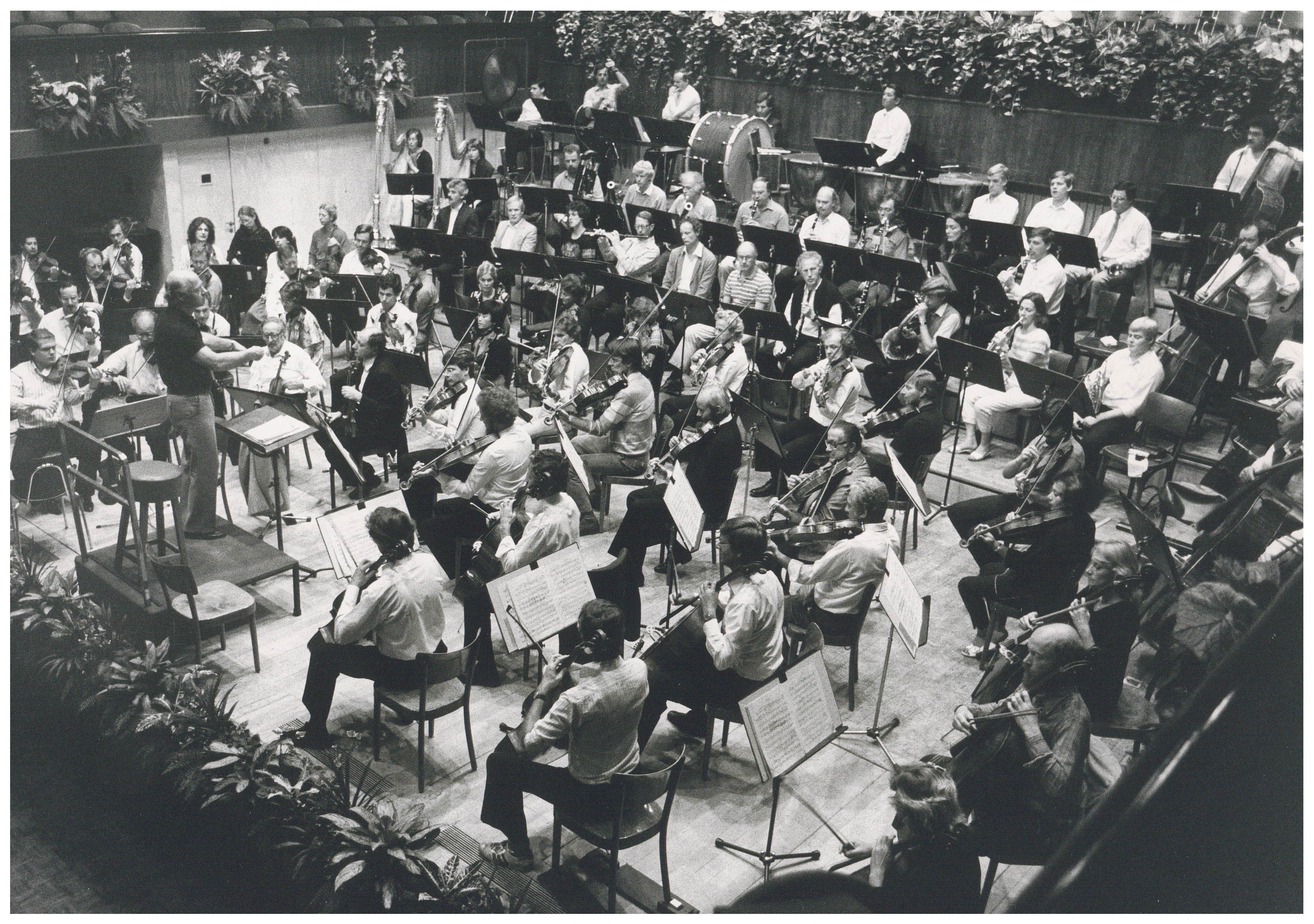
In the late 19th century, a group of visionaries in the Netherlands recognized a burgeoning need for a professional orchestra capable of delivering high-quality performances. Their dreams materialized in the form of the Royal Concertgebouw Orchestra, founded in a time marked by cultural awakening across Europe. From its inception, the orchestra sought to elevate the listener’s experience and redefine what was thought possible in the realm of performance.
With its inaugural concert held at the stunning Concertgebouw concert hall, the orchestra quickly garnered attention and admiration. The venue itself, often celebrated for its unparalleled acoustics, became a vital asset to the orchestra’s identity. Over the years, the orchestra has hosted numerous esteemed conductors and musicians, further enhancing its reputation as an incubator of talent and excellence.
Influential Figures and Milestones
Throughout its illustrious history, the Royal Concertgebouw Orchestra has been shaped by numerous luminaries who have left indelible marks on its identity. Conductors like Willem Mengelberg and Bernard Haitink have not only guided the orchestra through various eras but also influenced the broader world of classical music. Their interpretations and visions have resonated far beyond the concert hall, impacting a generation of musicians and audiences alike.
The role of the violinist, soloist, and composer has equally contributed to the orchestra’s legacy. Renowned artists such as Janine Jansen and Leila Josefowicz have graced the stage, adding their unique flair to the performances. These collaborations foster a dynamic interplay between tradition and creativity, pushing the boundaries of orchestral music and inviting listeners into unexplored realms of sound.
Artistic Innovation: Tradition Meets Modernity
One of the defining features of the Royal Concertgebouw Orchestra is its capacity for artistic innovation. Balancing rich traditions with a willingness to embrace modernity allows the orchestra to remain relevant and engaging. This section explores the orchestra’s adaptive nature, collaborations with contemporary artists, and the evolving concert experience.
Blending Tradition with Modernity
While firmly rooted in classical traditions, the Royal Concertgebouw Orchestra demonstrates an impressive adaptability to modern influences. This balancing act invites exploration of how traditional compositions can be reinterpreted, allowing audiences to encounter familiar works in fresh and exciting ways.
By commissioning new works from contemporary composers, the orchestra creates dialogue between the past and present. This fusion of styles encourages listeners to reflect on their relationship with classical music, prompting meaningful discussions about its relevance in our ever-evolving landscape.
Collaborating with Contemporary Artists
Collaboration serves as a hallmark of the Royal Concertgebouw Orchestra’s innovative spirit. Working alongside modern artists from various disciplines—be it visual arts, dance, or multimedia—the orchestra cultivates interdisciplinary projects that broaden the scope of the concert experience.
These collaborations not only enhance the concert experience but also create platforms for cross-genre experimentation. Musicians from disparate backgrounds bring their unique perspectives, enriching the orchestra’s repertoire while expanding the horizons of classical music.
Redefining the Concert Experience
In an age dominated by digital distractions, redefining the concert experience becomes paramount. The Royal Concertgebouw Orchestra recognizes that fostering genuine connections with audiences is essential for ensuring the continued relevance of live performance.
Through immersive programming, interactive pre-concert talks, and educational outreach initiatives, the orchestra emphasizes the significance of live music as a shared human experience. These efforts encourage deeper engagement with the art form, inviting audiences to step beyond passive listening and actively participate in the cultural dialogue.
By prioritizing audience engagement, the Royal Concertgebouw Orchestra nurtures a sense of community and belonging, compelling us to reconsider the role of orchestras in contemporary society. Are they merely entertainers, or do they play a vital part in fostering social cohesion and cultural literacy?
Cultural Impact and Global Reach
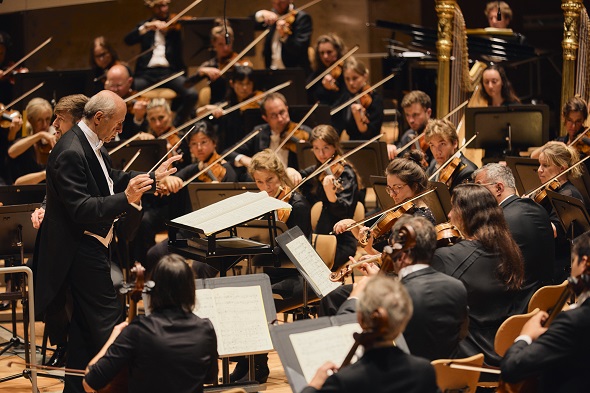
The Royal Concertgebouw Orchestra transcends mere performance; it embodies a cultural force that resonates on a global scale. In this section, we examine how the orchestra serves as an ambassador of Dutch culture, its international tours, and the broader significance of its approach to art.
An Ambassador of Dutch Culture
The Royal Concertgebouw Orchestra has emerged as a cultural ambassador for the Netherlands, showcasing not just musical prowess but also the nation’s rich artistic heritage. As it traverses the globe, performing in renowned venues from Carnegie Hall in New York to the Sydney Opera House, the orchestra brings forth the essence of Dutch creativity and craftsmanship.
In doing so, the orchestra elevates its own profile while simultaneously promoting the wider cultural landscape of the Netherlands. Each performance acts as a conduit for cross-cultural exchange, allowing audiences from different backgrounds to appreciate the nuances of Dutch art, music, and tradition. Such interactions cultivate a sense of shared humanity, reinforcing the idea that music transcends language and borders.
International Tours and Collaborations
Embarking on international tours, the Royal Concertgebouw Orchestra expands its reach and influence, forging connections with audiences worldwide. These excursions are more than just a showcase of talent; they serve as opportunities for collaboration with local artists, fostering mutual respect and understanding among diverse cultures.
Each tour presents a unique set of challenges and rewards. The orchestra must not only perform but also represent its home country effectively. This dual responsibility can lead to interesting dynamics, as musicians engage with unfamiliar audiences while remaining true to their artistic roots. The result is a rich tapestry of experiences that enhance the orchestra’s legacy and enrich the lives of all involved.
Inspiring Future Generations
Through its global presence, the Royal Concertgebouw Orchestra has the power to inspire future generations of musicians, composers, and enthusiasts. Its commitment to excellence sets a standard for aspiring artists, encouraging them to pursue their passions regardless of the challenges they may face.
Moreover, the orchestra’s international engagements highlight the importance of cultural exchange in shaping artistic identity. Young musicians who witness the orchestra’s performances may find themselves inspired to explore new genres, experiment with different forms, or even seek collaborations with artists from diverse backgrounds. This ripple effect ensures that the legacy of the Royal Concertgebouw Orchestra continues to thrive well into the future.
Community Engagement: Building Bridges Through Music

The Royal Concertgebouw Orchestra takes its commitment to community engagement seriously, reflecting a broader understanding of its role within society. This section examines outreach initiatives, educational programs, and the orchestra’s role in nurturing appreciation for the arts among younger generations.
Nurturing the Next Generation
Understanding the importance of cultivating future audiences and artists, the Royal Concertgebouw Orchestra has dedicated significant efforts toward educational outreach. Programs designed for young people provide a foundation for introducing classical music to younger demographics.
Through workshops, masterclasses, and performances tailored specifically for school-aged children, the orchestra nurtures an appreciation for the arts that extends beyond mere exposure. These initiatives promote creativity and discipline, instilling values that benefit individuals and society as a whole.
Encouraging musical exploration, the orchestra inspires children to develop their talents and connect with their cultural heritage. As young people engage with music, they develop critical thinking skills, emotional intelligence, and a sense of belonging within the artistic community.
Creating Meaningful Connections
The Royal Concertgebouw Orchestra understands that the live concert experience can serve as a powerful tool for creating meaningful connections within communities. By bringing performances to diverse venues, from schools and community centers to underserved neighborhoods, the orchestra fosters inclusiveness and accessibility.
Such efforts aim to break down barriers that may prevent individuals from experiencing live classical music. By reaching out to underrepresented populations, the orchestra can celebrate diversity and facilitate cross-cultural dialogue through the universal language of music.
These initiatives not only enrich the community but also challenge preconceived notions about who can enjoy classical music. They invite individuals from all walks of life to join in shared experiences, ultimately reinforcing the belief that music belongs to everyone.
Reflecting on the Role of Orchestras
The commitment of the Royal Concertgebouw Orchestra to community engagement prompts profound questions regarding the role of orchestras in contemporary society. Are they simply entertainers, or do they possess the potential to become vital contributors to social cohesion and cultural literacy?
In an era of digital distractions and fragmented attention spans, the orchestra’s emphasis on live music as a communal experience underscores the importance of shared moments. As audiences gather in concert halls, they participate in an embodied act of cultural exchange, reaffirming their connection to one another and to the larger narrative of humanity.
Through such reflections, we begin to understand that the Royal Concertgebouw Orchestra is not merely a performance entity; it is an integral part of society’s cultural fabric. Its efforts to foster connections through music illuminate pathways toward greater understanding and solidarity in an increasingly divided world.
Conclusion
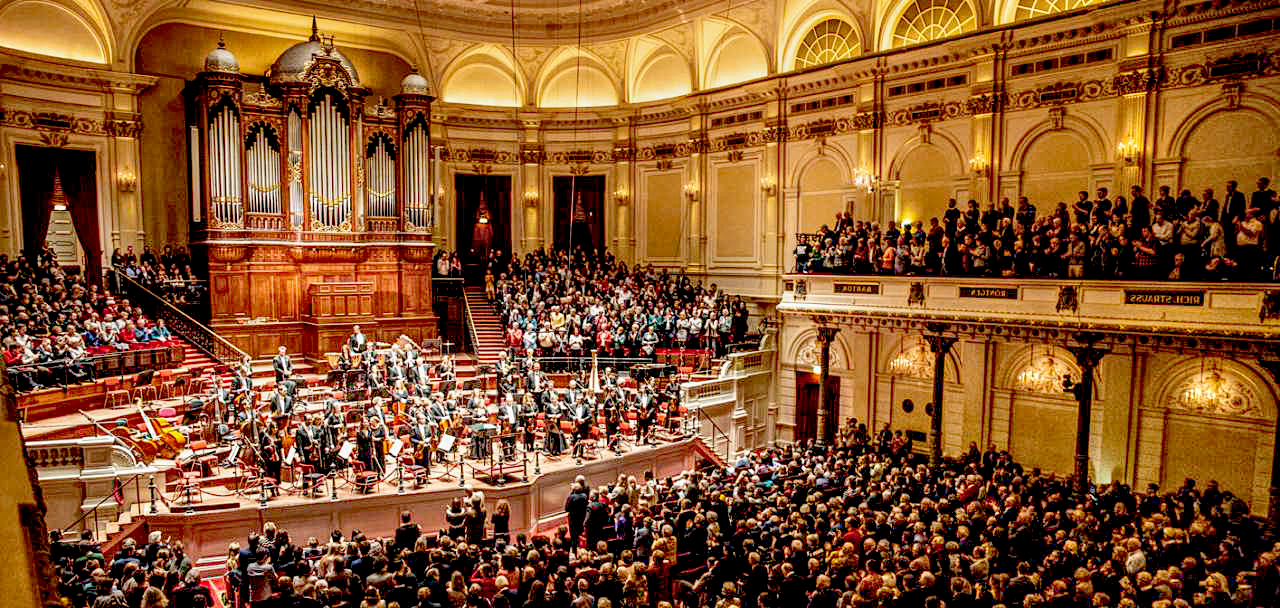
The journey through the history, influence, and contributions of the Royal Concertgebouw Orchestra reveals an institution that stands as a beacon of artistic excellence and cultural diplomacy. Its deep historical roots, unwavering commitment to innovation, and active engagement with the community highlight the orchestra’s crucial role in shaping the landscape of classical music and the broader cultural narrative of our time.
As we reflect on the journey, we recognize that the Royal Concertgebouw Orchestra invites us to think critically about our relationships with the arts. It challenges us to participate actively in the cultural conversations that define our lives, revealing that music has the power to unite, inspire, and transform—an enduring testament to the orchestra’s legacy in a world ever in flux.

